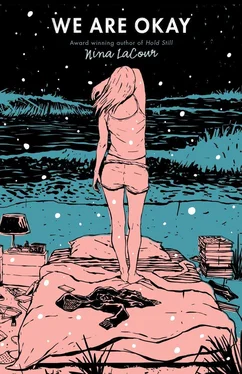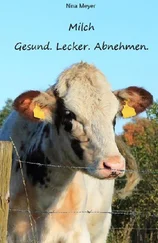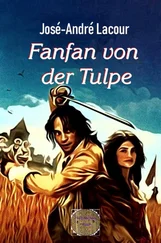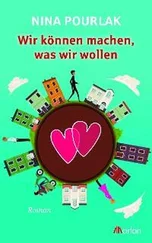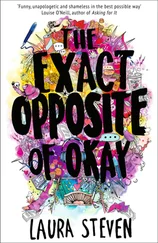“Can you tell me something?”
“Sure.”
“Anything. Tell me about one of your classes.”
“Okay. I’m taking Art History? I think I might minor in it. I really love the Mexican art, which makes my mom so happy. Like Frida Kahlo. Her paintings are so . . . strong . There are all the self-portraits, close-ups of her face and shoulders with variations. Like sometimes she has animals with her, monkeys, a weird hairless dog, that kind of thing. And some are more simple. Is this right? Am I helping?”
I nod.
“My current favorite is called The Two Fridas . It’s pretty much the way it sounds. There are two versions of her, sitting next to each other on a bench. One is wearing a long white dress with an elaborate lace bodice and collar, and the other one is dressed in . . . I don’t remember exactly. Something more relaxed. But the thing that I really like about it is you can see their hearts. You can see right into their chests. Or maybe their hearts are outside their chests. It’s kind of gruesome, like most of her paintings, but it’s also really dramatic and beautiful.”
“I’d like to see it.”
“I can pull it up if you want me to. Hold on one second.”
I open my eyes.
We are in my room.
My hands are still.
She’s taking my computer off my desk and entering a search. She sits down next to me and positions the screen between us, resting it on one of my knees and one of hers. The painting is how she described it, but there’s also more. Behind the two Fridas are storm clouds, gray-blue and white.
“I can’t tell,” I say, “if the trouble is coming or if it’s passed and already left them.”
“Or maybe they’re in the middle of it,” she says. “Something is happening with the hearts.”
The hearts are connected by a thin red line. A vein. It’s bleeding onto the Frida in the white dress, who is holding a pair of scissors. I point to her heart.
“We’re looking inside her chest to see it,” I say. “And it looks painful. But the other one . . .” I point to her. “I think her heart’s outside her body. It’s still whole.”
“You’re right,” Mabel says.
Where the one in the white dress has scissors, this one has something else.
“What is she holding?”
“It’s a tiny portrait of Diego Rivera. She painted this during their divorce.”
“So it’s about losing him,” I say.
“Yeah, I guess,” she says. “That’s what my professor says. But doesn’t that make it too simple?”
I turn my head to look at Mabel.
“It’s better if it’s complicated?” I say.
She smiles. “Well, obviously.”
I take another look at the screen. “Maybe it really is as simple as it looks, though. She was one person before. She had a whole heart and the man she loved. She was at ease. And then something happened, and it changed her. And now she’s wounded.”
“Are you trying to tell me something?” Mabel says. “Are you finally answering me? If you need to do it this way, I’d be happy to find a bunch of paintings for you to analyze.”
“No,” I say. “I mean, yes—I know how she feels. But that’s not what I’m doing. I’m just looking at your painting.”
“The thing I most love about it,” Mabel says, “is how they’re holding hands right at the center of the painting. It’s so important. It’s what the whole thing’s about, I think.”
“It could mean so many different things.”
“Like what? I just think it means the Fridas are still connected. Even though she’s changed, she’s still the same person.”
“Yeah, it could mean that,” I say. “But it could also be something else. Like the whole one is trying to pull the wounded one back to her, as if she could undo what’s happened. Or the wounded one is guiding her old self into her new life. Or it could be that they’ve separated almost entirely from each other, and they are holding hands as a last moment of connection before they break apart completely.”
Mabel stares at the image.
“And why are you changing your major?” she asks.
“Because wouldn’t it be better,” I say, “if the hand-holding really just meant they were connected, and you didn’t have to think about the other possibilities?”
“No,” she says. “Not at all. That would not— in any way —be better than realizing that there are many ways to see one thing. I love this painting even more now.”
She sets the computer down on the bed. She stands up and glares down at me.
“Seriously,” she says. “ Natural Sciences? ”
And then everything goes dark.
WE DECIDE WE SHOULDN’T WORRYbecause, even though it’s cold and getting colder in here, we have jackets and blankets. If it comes to it, we can pick locks and scavenge for candles. For now, we have a few tea lights from Hannah’s drawer.
Our cell phones still have some charge left, but we’re using them sparingly and there’s no Wi-Fi anyway.
“Remember when the power went out sophomore year?” Mabel asks.
“I made you listen to me read all night.”
“Sylvia Plath and Anne Sexton.”
“Right. Those were dark poems.”
“Yeah, but they were fun, too.”
“They were defiant,” I say. I remember the sparks in them, I remember how the words made me feel dangerous and strong. “Lady Lazarus” and “Daddy” and all of Anne Sexton’s reimagined fairy tales.
“In my lit class we listened to a recording of Sylvia Plath. Her voice wasn’t what I thought it would sound like.”
I know those recordings. I used to listen to them online sometimes late at night. Every word she spoke was a dagger.
“What did you think she’d sound like?” I ask her.
She shrugs. “Like you, I guess.”
We drift into silence. The colder it gets, the more difficult it is not to worry. What if we can’t pick locks? What if the electricity doesn’t come back on for days? What if we get too cold while sleeping and don’t wake up in time to save ourselves?
“Maybe we should turn our phones off,” I say. “In case we need them later.”
Mabel nods. She looks at her phone, and I wonder if she’s thinking about calling Jacob before she turns it off. The light of the screen casts across her face, but I can’t read her expression. Then she holds down a button and her face goes dark again.
I cross the room to look for mine. I don’t keep it near me all the time the way she does or the way I used to. I don’t get many texts or calls. I find it next to the bag of Claudia’s pottery. I pick it up, but before I can power it off it buzzes.
“Who is it?” Mabel asks.
“I don’t know,” I say. “An area code from here.”
“You should answer it.”
“Hello?”
“Don’t know how long you were planning on sticking it out,” a man says. “But I imagine it’s getting to be pretty chilly in there. And it looks mighty dark.”
I turn to the window. The groundskeeper is standing in the snow. I can barely see him but for the headlights of his truck.
“Mabel,” I whisper. She looks up from her phone and joins me at the window.
I pick up one of the tea lights and wave it in front of the window, a tiny hello I’m not sure he can see from there. He lifts his hand in a wave.
“The power’s out for you, too, though. Isn’t it?” I ask.
“Yes,” he says. “But I don’t live in a dormitory.”
We blow out the candles. We pull on our boots and grab our toothbrushes. And then we are out in the impossible cold, leaving trails of footprints in the snow from the dorm entrance to where his truck is idling.
Читать дальше
